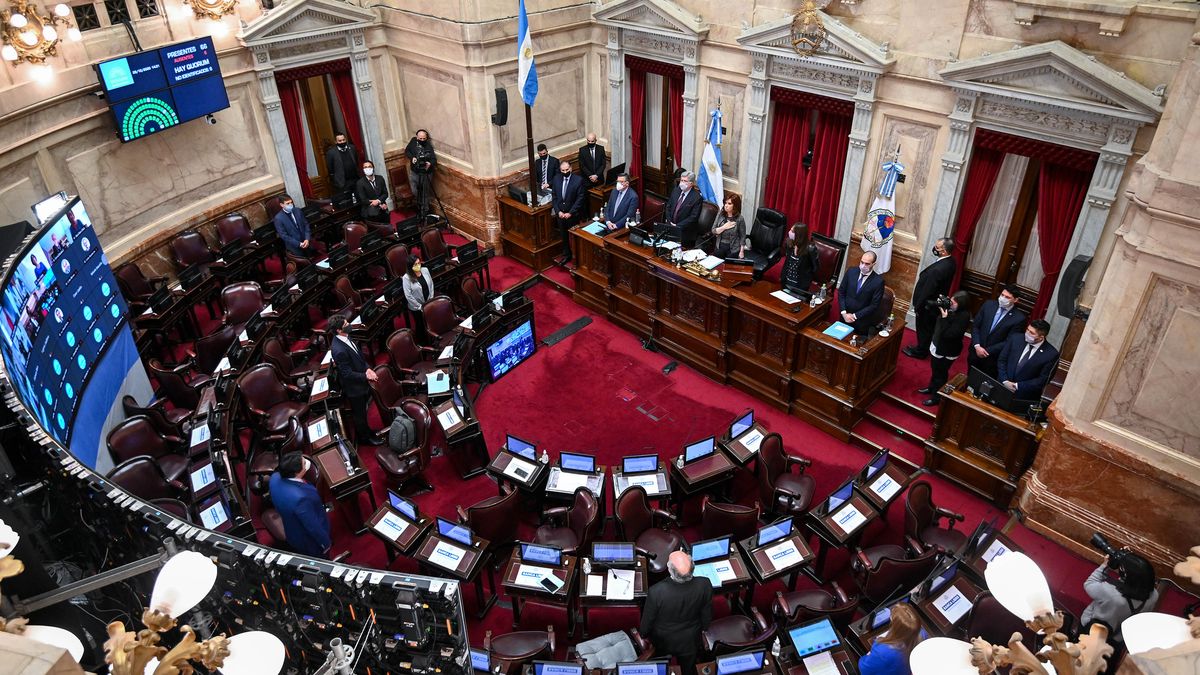The legislators ask President Alberto Fernández to move forward to July 1 of this year “to preserve purchasing power”, because they assure that inflation could be 66% in December. Programs such as Enhance Work are established with 50% of the minimum wage, so The measure would have a fiscal cost of some 12 billion, 0.02% of GDP, estimated Hernán Letcher, director of the CEPA Center, because 1.2 million people charge it.
“Our commitment as a political space is to protect wages,” say the foundations of the project, which is also signed by deputies of union origin, including Sergio Palazzo, from La Bancaria. The initiatives reach Congress in a context where Cristina Kirchner stated that low wages are one of the keys to “democratic dissatisfaction”.
Then, on Friday hours before Cristina Kirchner’s speech, senators close to the vice presented a pension project, so that people who do not reach 30 years of contributions can pay those missing periods and retire. They consider that 500,000 people could join in 2022 and another 300,000 in 2023. In the presentation, they believed that the fiscal cost “is almost zero”, and reported that it will be 0.02%according to information provided by Anses.
The presentation was in charge of José Mayans, Anabel Fernández Sagasti, Juliana Di Tullio and Mariano Recalde in which they assured that “the greater social justice, the greater social peace”. Other estimates, such as the one established by Cepa’s Letcher, consider that the measure could have an impact of 0.04% of GDP, of about $25 billion a year, if some 300,000 people retired, when calculating the differential if the people will retire with the Puam (universal pension for the elderly), which is 20% lower than the minimum.
Carlos Martínez, professor of social security economics at the UBA, considered that the fiscal impact could be greater, given that the average amount of pensions with moratoriums is almost $35,000, higher than the minimum. If the 800,000 people who could do so were to retire, the extra fiscal cost would be almost $200 billion for a year, although the fee they would pay every month would have to be deducted from that. The 3.5 million current pensions with moratoriums are equivalent to 2.4 points of GDPaccording to an IDESA report.
The most ambitious project in terms of income is the one that will be presented this Tuesday to create a universal basic salary, which is paid by 9 million people, among the unemployed, informal, monotributistas and agricultural workers and private homes. It was drafted by Itai Hagman, Natalia Zaracho and Federico Fagioli, deputies of Juan Grabois’s Front Patria Grande. The fiscal cost will be around 0.9% of GDP, they reported. The payment would be equal to the value of the basic food basket and they assure that it would allow “eliminating indigence.” The beneficiaries should comply with compensation, such as training workshops or development of community activities.
In a radio interview, the Minister of Economy, Martín Guzmán, gave his opinion on the projects. Regarding the minimum wage, he said that it is “obvious” that the quotas have to be paid in advance, but that the discussion will remain within the Salary Council, and that the urgent measure that was taken was the $18,000 bonus, which revealed that they will receive more than 6 million people. Regarding the pension project, he assured that they had not yet analyzed it, and that the Ministry of Economy had not been consulted. Finally, regarding the social plans, he was of the opinion that they should not be extended in a context of falling unemployment, but should be converted into “genuine employment”.
Source: Ambito
David William is a talented author who has made a name for himself in the world of writing. He is a professional author who writes on a wide range of topics, from general interest to opinion news. David is currently working as a writer at 24 hours worlds where he brings his unique perspective and in-depth research to his articles, making them both informative and engaging.




